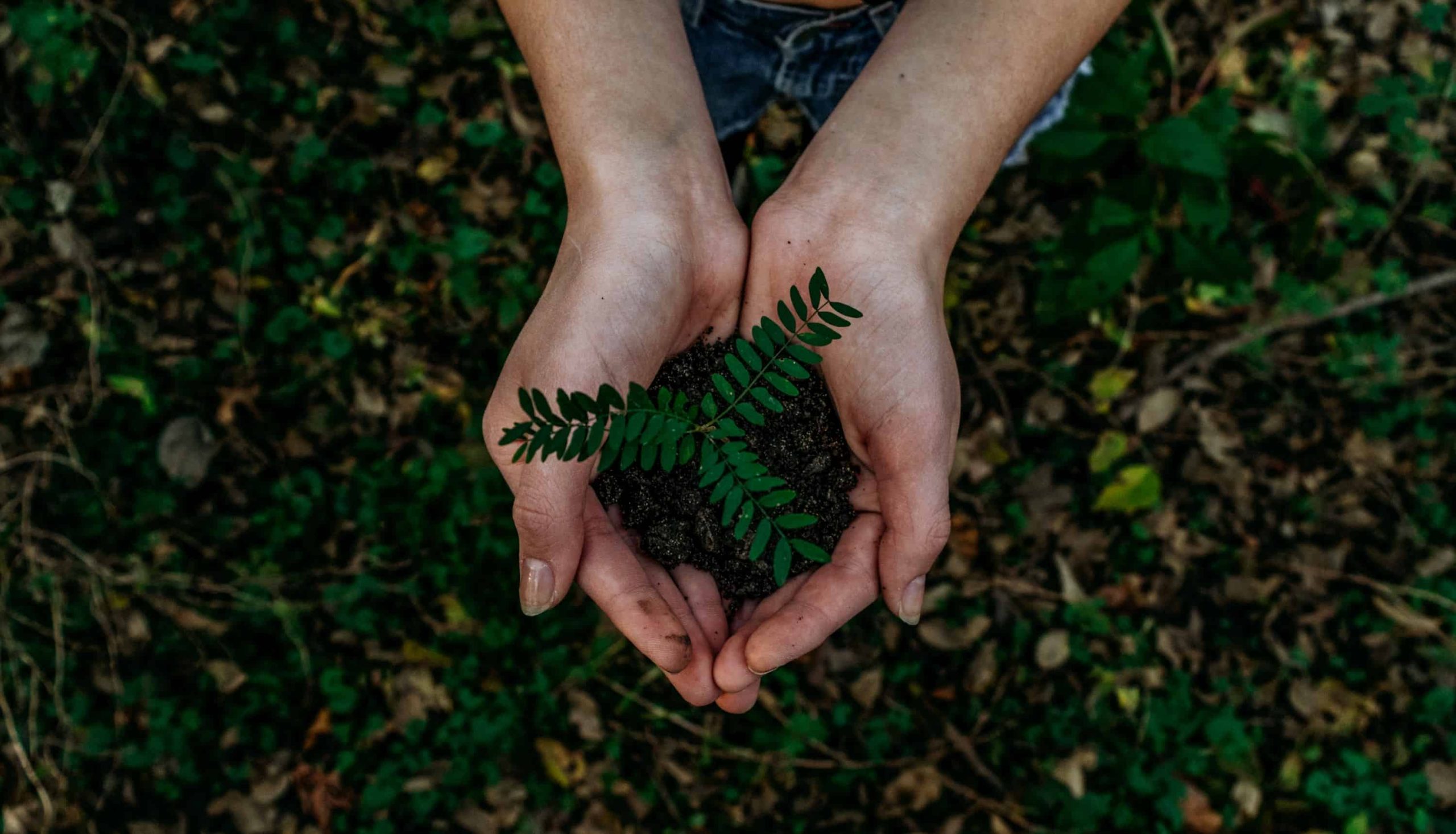From driving to work to choosing your fabric conditioner, and deciding what to have for dinner, our daily decisions affect the environment. Living more sustainably and supporting brands that focus on a circular economy and eco-friendly alternatives are becoming increasingly important. In this article, I discuss the different ways we can live more sustainably and reduce our environmental footprint.
Reducing your use of plastic
Plastic may have revolutionised the way we live, but plastic pollution has become one of the most pressing environmental issues we face today. The majority of plastic bottles and containers now come with a fully recyclable sign, but how much of this plastic is actually recycled and turned into something new? Not as much as you may think.
According to a study by Greenpeace, the majority of plastic in the US is headed to landfills. Another report looks at how plastic waste is handled in the UK and it’s either being dumped in other countries or burned. Burning plastic can generate and release pollutants, hurting the environment and affecting air quality and public health. This sounds daunting and whilst recycling shouldn’t be stopped, it certainly is not the solution to the problem at hand perhaps we as individuals can’t control plastic production, but we can control our own use of it.
Here are a few ways you can reduce the use of plastic that will help you live more sustainably:
- Carry out a bottle of water when you go on walks. This will help you stay hydrated and you won’t need to purchase water in a plastic bottle.
- Opt-in for beeswax wraps instead of clingfilm.
- Say goodbye to balloons as unfortunately they are made of single-use plastic.
- Remember to take a cloth bag when you go shopping or reuse your previous plastic bags.
- If you have local shops selling food in bulk, choose to use food containers and shop plastics-free if your budget allows it.
- Choose products that are either sold loose or do not include plastic packaging. Food retailers are selling a lot more loose vegetables and fruit.
Eating a plant-based diet
Eating a plant-based diet is most likely the best thing you can do to live more sustainably. Livestock emissions include both carbon dioxide and methane which is more damaging to the environment. It is suggested that beef has the biggest carbon footprint, but meat is not the only culprit. The production of chocolate, farmed fish, and cheese are also top contributors to climate change.
Animal agriculture is a water-intensive industry, requiring vast amounts of water to grow crops to feed livestock and to provide drinking water for the animals themselves. By reducing meat consumption, we can reduce the amount of water used to produce our food. Large areas of land are also cleared for grazing and feed production, which can lead to habitat destruction and loss of biodiversity. Moreover, animal agriculture is a significant contributor to water and air pollution, particularly through the use of fertilizers, pesticides, and manure. The overconsumption of meat and processed food is also linked to poor health which means that reducing the amount of processed meat in your diet will help your health as well as the planet.
That said, I am not an idealist and I know people would never stop eating meat, and maybe they shouldn’t, but focusing on quality over quantity will be good for the planet and yourself. Avoiding fast food and processed meats could be one of the best things you can do to live more sustainably and improve your overall health.
Reducing food waste
According to The Eco Experts, 40% of food gets wasted globally, with the UK throwing away 9.5 million tonnes of food every year. That’s devastating and it feels almost sinful. This not only contributes to the waste of manufacturing costs but also to greenhouse emissions, not to mention the ridiculousness of overconsumption in the West and starvation in other parts of the world.
I have been guilty of not using the food I have in the cupboard too. In the past, I wouldn’t calculate exactly the number of ingredients I need or I will not cook a recipe for which I already have the needed products and will opt out for an easier option like a takeaway. Whilst it is difficult to avoid this at all times, reducing your food waste is good for the planet and your pocket. Unfortunately, when food is wasted, it goes to a landfill where it rots and contributes to the release of methane, a gas that is 25% more potent than carbon dioxide. Because of the lack of oxygen, organic matter such as food waste, paper, and wood is stuck is trapped and releases methane, which contributes to climate change and pollutes the air. This makes food waste of the biggest problems contributing to climate change.
To reduce your food waste, you can try and prepare a list of meals for the week and only buy the ingredients you need. You can also try and sign up for meal subscriptions such as Hello Fresh. Receiving Hello Fresh boxes that contain both the ingredients and the recipes has really reduced my food waste because I only use the ingredients I need.
Composting is a terrific way to help the environment and also keep your plants happy because of the extra nutrition they get as part of the freshly created soil. Composting means that you can use your food scraps and wood products such as egg cartons and dry leaves or grass to recycle in your own home and reduce your carbon footprint. It’s now been a whole year of using my compost bin and it’s amazing to see how much food waste I can add to it. It’s fantastic being able to compost food scraps instead of adding them to the usual bin, which otherwise will get sent to a landfill and result in more methane pollution. I completely understand that composting can be easy when you live in a house because you have extra space. However, this can be an issue for people living in smaller places who don’t have a garden. In this case, look for communal compost paces or invest in a small compost bin that you can keep in the outside area of your flat.
Supporting sustainable businesses
We as consumers have the power to change the business landscape. As big as corporations can get, we have the purchasing power to change the game by simply changing our purchasing habits. This is why how and where we spent our money matters. I am aware that some sustainable alternatives cost more compared to everyday products but if you can make the switch, the planet, and future generations will be better for it. I feel extremely lucky to live in the UK, a country where sustainable and planet-friendly businesses have seen such a surge that it’s in fact quite easy to support companies that are paving the way to zero-waste living.
Speaking from experience, here is my list of favourite UK brands that will help you live more sustainably.
- Wild — I have been using Wild for a few weeks now and I have completely fallen in love with this product. This sustainable natural deodorant is naturally vegan and is available in several gorgeous scents. You need to purchase the case and then schedule your refills on the site. The process is super easy and you won’t be disappointed!
- Smol — I have been a customer of Smol for over one year and have been using their washing pods as well as their fabric conditioner and I don’t want to ever look back. The washing pods arrive through the letter box and I can even return the empty fabric conditioner bottles to be reused. The company has grown immensely over the past few years and you can easily see why. Their amazing products speak for themselves.
- Bide Planet — This is a revolutionary company that works with a local workforce to produce planet-friendly and sustainable cleaning products.
- Wideye — This is a local company that produces skincare that is good for both the environment and your body. Their products are both vegan and cruelty-free and offer bottle exchanges in their local stores.
- Who gives a crap — A 100% recycled toilet paper that comes in plastic-free packaging and it’s good for the planet and your cheeks.
- Discarded Spirits — If you are in the mood for rum and coke but don’t want to harm the planet, this brand is for you. Discarded Spirits is a zero-waste brand, that uses discarded products to create delicious cascara vermouth, banana peel rum, and grape skin vodka.
Reducing energy consumption
Reducing your energy consumption could be one of the hardest things you do because of how much we rely on electricity to heat our homes, cook our food, go to work, work from home, or take care of our family. However, there are small steps we can take to reduce our energy consumption and help the environment. Here are some examples.
- Switch off lights when you leave a room and save electricity
- Use your washing machine on a 30-degree cycle instead of higher temperatures
- Avoid using a tumble dryer, especially on a bright sunny day, and if you have an open space where your clothes can dry
- Spend less time in the shower, this will save you both water and energy
- Be smarter when you cook and use cooking lids to preserve energy
- Don’t run the dishwasher when it’s only half full, potentially wasting both energy and water.
- If you are working from home, don’t leave your laptop charging throughout the night.
- Turn down radiators when rooms are not in use
- Close curtains in the winter to keep the warmth in the room
- Change your lights to energy-efficient bulbs
- If you can and your budget allows it, update your appliances to more energy-efficient models
In summary
We can all make small changes to our lifestyles and live more sustainably. You can also look to buy plastic-free soap, and cycle or walk when you can instead of driving. It’s also really important to spread the message and talk about how we as a society can be more sustainable. Talk to your family and friends, ask for advice, or simply discuss the topic of sustainable living. Conversations like this can spark ideas, and inspiration, and spread awareness.
If you have ideas on how to live more sustainably, please get in touch. I would love to discuss them with you.

